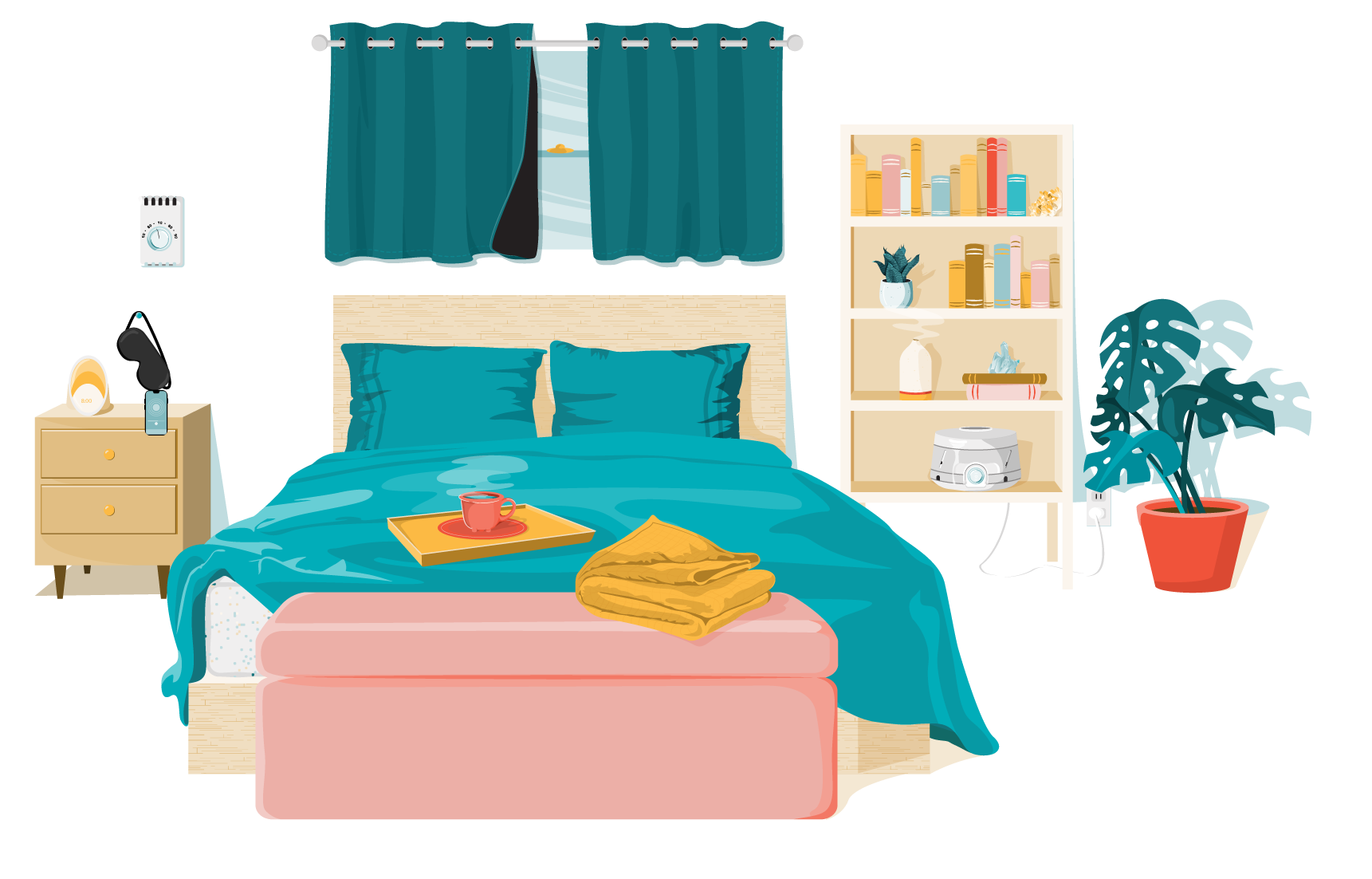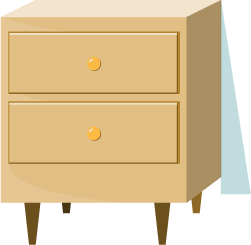































Click to explore


Sheets and pillowcases made from natural fabrics are ideal for a cool and restful night’s sleep. Cotton, bamboo, silk, and linen sheets are generally best for wicking moisture away and keeping cool. The only problem? Your bed will be so comfortable, you might never want to leave.
Natural bedding

Learn more
Learn more
Be mindful of the shape, thickness, and firmness of the pillow you select. It’s important to use one that supports the curve of your neck and fits your sleeping position (back, front, or side). The right pillow for you will help align your spine to keep you comfortable and allow for a deeper rest. Here’s our roundup of the best pillows
Pillows for your sleep position

Learn more
Learn more
Weighted blankets mimic deep pressure stimulation, a form of therapy in which pressure applied to your body helps lower your levels of stress. For this reason, weighted blankets help not only with insomnia and restlessness, but also with anxiety, depression, and fatigue throughout the day. Worried that you run too warm to use them? There are some great options for hot sleepers, too.
Learn more about choosing the right weight here.
Weighted blanket

The firmness of your mattress affects the quality of your sleep, and your sleep position determines the ideal firmness for you, so make sure to do your research before purchasing. How do you know when you’ve got the wrong mattress? If you’re uncomfortable, waking up with aches and pains, or you’re feeling cramped, it might be time for a mattress refresh.
Find the right mattress for your sleep position here.
The perfect mattress

Learn more
Learn more
A pitch-black room is essential to getting your very best sleep. Installing blackout blinds or curtains can help you to get the full benefits of natural light during the day and darkness at night, thereby supporting your sleep-wake cycle. There are tons of options on the market, so be sure to
do your research to buy one that works well for your space.
Blackout blinds or curtains

Learn more
Learn more
Consider painting your bedroom walls a color that will help promote sleep. Colors have psychological effects, and while some may evoke feelings of calm, others may be stimulating. Research shows that people find muted tones of blue, green, and yellow to be soothing, relaxing, and joyful — all conducive to a good night’s sleep. Read about wall colors helpful for sleep here.
Calming colors

A calming nighttime tea could be the missing ingredient in your sleep recipe. Different bedtime blends feature different herbs (like chamomile, peppermint, and passionflower), but all with the intention of helping you get to sleep naturally. Read more here about the best teas to help you fall asleep.
Night-time tea


Click to explore

Click to explore



Click to explore


Click to explore

Click to explore









Learn more
Learn more
The temperature of your sleep environment is a crucial factor for a good night’s sleep. Your body’s internal temperature is naturally lower throughout the night, and if your room is too hot (or too cold), it can affect your ideal temperature and disrupt your sleep. So turn your thermostat down at night to the optimal night-time temperature of about 65°F (18.3°C).
Cool sleeping environment












































































































